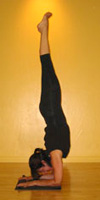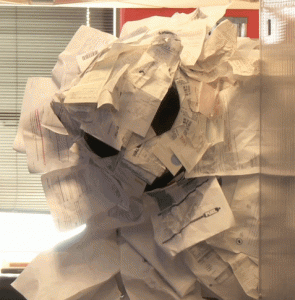I’m going to tell you a short story about a lobster to illustrate what happens to us when we experience change and more importantly when we are called to take action when we want to change something about ourselves or our homes.
As a lobster ages and grows, it needs to shed it’s shell. It does this by finding the safest place it can in the rough surf of the ocean and far away from other predators. As it matures, its shell starts to constrict around it’s body. If it didn’t shed its shell, it would suffocate and die. This means that until its new shell hardens, the lobster will be completely vulnerable to the elements. It has an instinctual need to risk its life in order to grow and thrive.
For many of us “change,” even when it’s for the good, such as when we decide to get organized, makes us feel like that lobster. We know we need to move forward but sometimes the thought scares us as much as being thrown into a violent ocean current. Not changing can also mean suffocating in our own shells. It’s no wonder facing change and taking action can be so overwhelming.
Change, though not a linear process, is like the lifespan of the lobster. It involves a process of feeling uncomfortable enough to make a change that will bring us to know ourselves better. It involves several phases which I’ve narrowed down to six.
The Six Phases of Change
1) Passive discontent
2) Naming the problem
3) Getting help
4) Readiness
5) Doing
6) Results
Phase 1: “Passive Discontent”
This is the phase marked by general feelings of dissatisfaction with the status quo. It’s a kind of restlessness combined with a heightened level of awareness. It may come about after you’ve read a book, seen a TV show or heard someone talk about something that makes you uncomfortable, angry, sad, frustrated or overwhelmed. Those close to you may have even hinted to you that something was wrong. You’ve been feeling “not yourself” but you’re not ready to take action yet.
The sad part is some people stay at this phase forever. This happens when the pain of changing exceeds the pain of the status quo.
Such is the case for some people with severe and chronic disorganization or Chronic Hoarding Disorder This happens when people pose a risk to their own (or other’s) health and safety by retaining extreme levels of indoor and outdoor clutter.
Unfortunately, the anxiety they feel when they consider letting go of possessions, no matter what condition, can exceed the pain of living in spaces that are completely unusable. Thus they remain stuck in a kind of limbo until forced to make a change against their own will. Most people who feel disorganized are not “Hoarders.” Instead we all fall somewhere along a spectrum from minimalist to severe acquirer. Most people are somewhere in the middle.
Phase 2: “Naming the problem”
When you ask yourself the question, What needs changing or what needs organizing? You are at this phase. This is where the soul-searching begins. You start thinking about resources for answers but you’re still apprehensive about verbalizing your thoughts or asking for help. Early attempts to express your dissatisfaction may result in your retreating to your shell especially if you are feeling unsure of yourself or if you are concerned about the judgment of others.
Phase 3: “Getting Help”
At this point you may be ready to look for some information or answers to help you better understand your feelings. These are actions that would include talking to friends and family as well as gathering information through research, online searches or consulting with professionals. You may start reading or attending talks or asking for advice. You’re dipping your toes in the water but you’re not yet ready to dive in. You’ve started to realize you can’t make the change you want by yourself and you may even start to feel some hope as you move to the next phase of being ready to take some action.
Phase 4: “Readiness”
You are now committed to using the physical, emotional or financial resources you have to start making some changes. You’ve hired a professional, received some good advice, or resolved to take action yourself. You may be feeling both relieved and impatient as you realize you want to make change happen sooner rather than later.
Phase 5: “Doing”
During the “Doing” phase, you experience the ups and downs of progress. Slip-ups may occur and you may feel discouraged. Motivation is replaced by the need for habits and contingency plans. Your ability to achieve your desired change is dependent upon your ability to withstand the disappointments, backsliding and obstacles. This is where planning is so critical to the process of change. If you don’t have a plan of action, you may get to this part of your journey and want to give up. Having a plan is something you should have in place by this phase. This is where hiring a professional organizer is worthwhile because he or she will have the expertise to help you plan for all contingencies, anticipating problems and suggesting alternatives.
Phase 6: “Results ”
Circumstances change from inside and out. Making small changes can have a big impact on your life. As a result of the changes you make and the actions you take, major events may occur. You can experience these as both “good” and “bad”. You’ll gain greater clarity around goals and desires and your energy increases but you may also see the unexpected consequence of the actions you’ve taken. People around you may behave differently towards you. Some may try to sabotage you. If you need to, seek some outside advice from friends or professionals who have tread the same path or who can advise you about how to manage unsupportive people. When you get to where you want to be, you can reflect on how far you’ve come.











